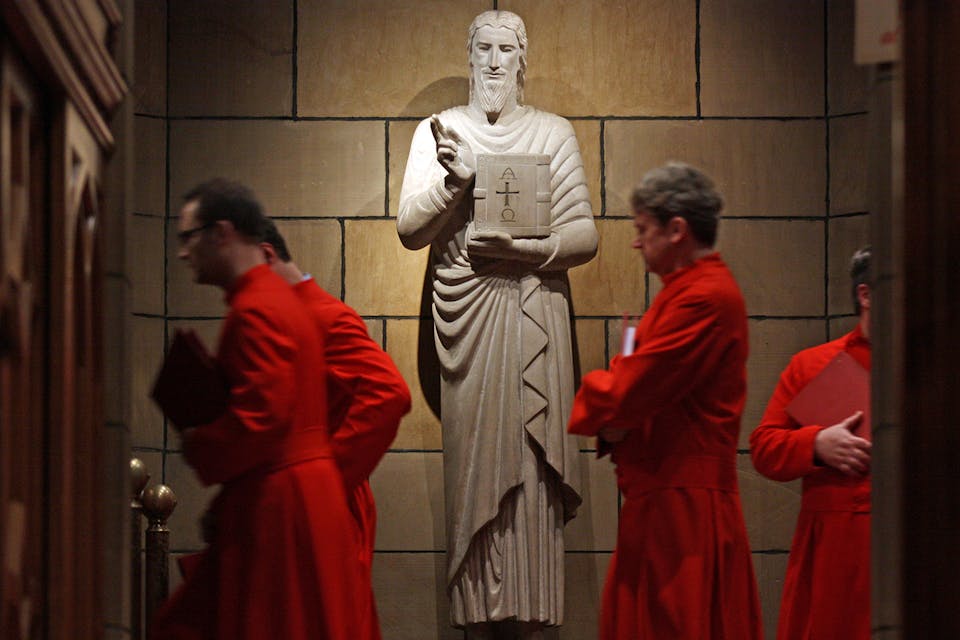
December 22, 2020
A Jew Goes to Handel’s “Messiah” at Christmas
By Seymour EpsteinSome reflections on how we Jews cope with the majority culture around us, provoked by Handel’s beautifully crafted 1741 oratorio.
While in an Orthodox home a few weeks before Christmas one year I noticed some red-and-white-striped candy canes on display. The lady of the house quickly noted that they were kosher with a reliable hekhsher (a funny thought in itself), and that she loved the Christmas spirit and the decorations. Not to worry: there were neither tree nor lights in this observant home. But the moment got me thinking of how we Jews cope with the majority culture around us, and I immediately arranged to attend, once again, George Frideric Handel’s famous 1741 oratorio, Messiah, a Christmas favorite even though it was intended for Easter.
Each time I attend the Messiah I vow to bring a Tanakh with me so that I can follow the biblical quotations in their original. And each time I forget to do so. I suppose that’s one way of coping with the comparison of mythologies, something Leonard Cohen warned us against in his early poetry. But this time, after the concert, I went home, searched the sources, and compared to my heart’s delight.
First, it is evident that the success of this oratorio was based not only on the exquisite music, a wonderful mélange of solo voices and choral power, but also on the audience’s familiarity with the King James Version of the Bible. For that 18th-century British audience, the verses quoted were part of their faith and recognized as sacred, even if they were translations from the Hebrew and Greek. For me, even as the music has its proper effect, I revel in the fact that I have access to the original passages from Isaiah, Haggai, Malachi, Zechariah, Psalms, Lamentations, and Job—all from the Hebrew Bible, in the language that has been kept alive by my people. And while I am certain that many Christians in the audience resonate to the biblical verses, I am sure that most of those who received only a public, secular education must suffice with the beautiful music alone, since the text rings no bells. In my own public-school days, we still studied a few selections from both the Jewish Bible and the New Testament. But now, even that minimal exposure to the literary background of Western civilization is probably forbidden.